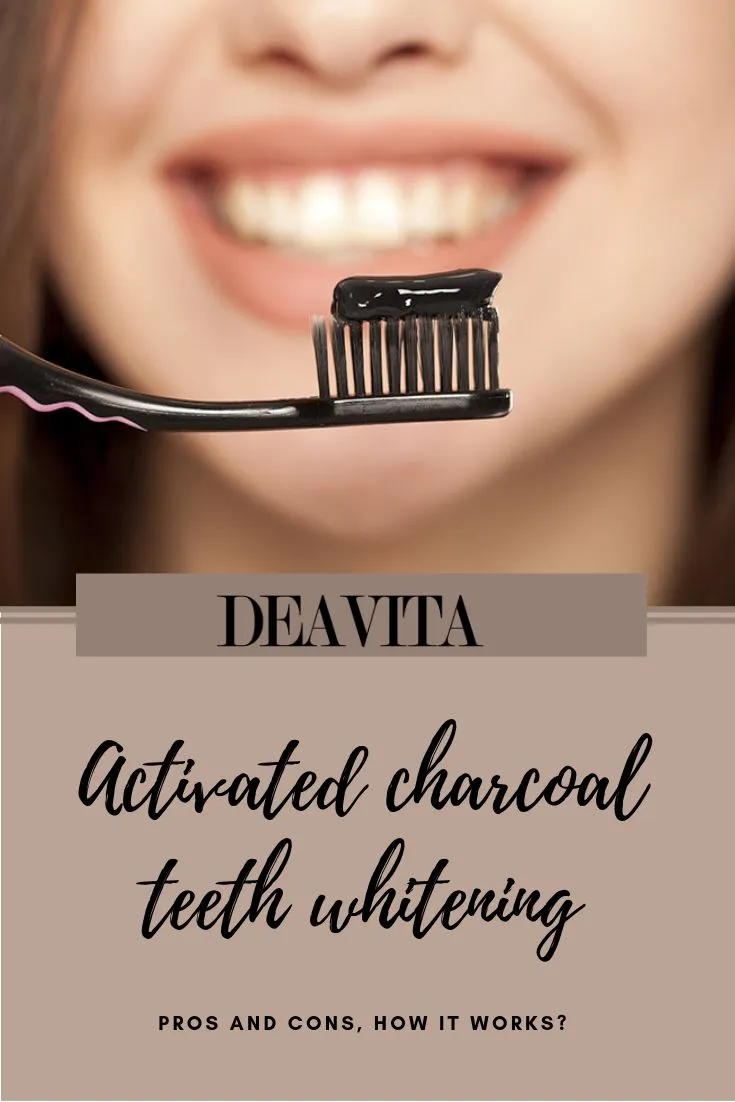What is Charcoal Teeth Whitening
Charcoal teeth whitening has surged in popularity as a natural method for brightening smiles. Unlike traditional chemical whitening treatments, charcoal utilizes activated charcoal, a fine black powder derived from sources like coconut shells, wood, or other organic materials. This substance is then processed to create a highly porous material with a large surface area. This unique characteristic is what makes activated charcoal effective in absorbing impurities and, in the context of teeth whitening, helping to remove surface stains. The premise behind charcoal teeth whitening is that the charcoal particles act as a gentle abrasive, helping to scrub away stains and reveal a brighter, whiter tooth surface. The approach is often appealing to those seeking a more natural alternative to harsh chemical treatments, with the added potential benefit of being a more cost-effective option.
How Does Charcoal Teeth Whitening Work
The primary mechanism behind charcoal teeth whitening lies in the abrasive properties of activated charcoal. When used on the teeth, the tiny charcoal particles gently scrub the enamel surface, helping to dislodge and remove stains caused by food, drinks, and other substances. The porous nature of activated charcoal is also crucial. It enables the charcoal to absorb impurities and stains, effectively lifting them away from the teeth. The process is not the same as bleaching, which changes the intrinsic color of the teeth. Instead, charcoal teeth whitening focuses on removing extrinsic stains that have accumulated on the surface. This method is most effective for stains caused by coffee, tea, wine, and tobacco. Regular use, as part of a comprehensive oral hygiene routine, may contribute to a noticeably brighter smile. It’s important to combine charcoal teeth whitening with proper brushing, flossing, and regular dental check-ups.
Charcoal’s Abrasive Nature
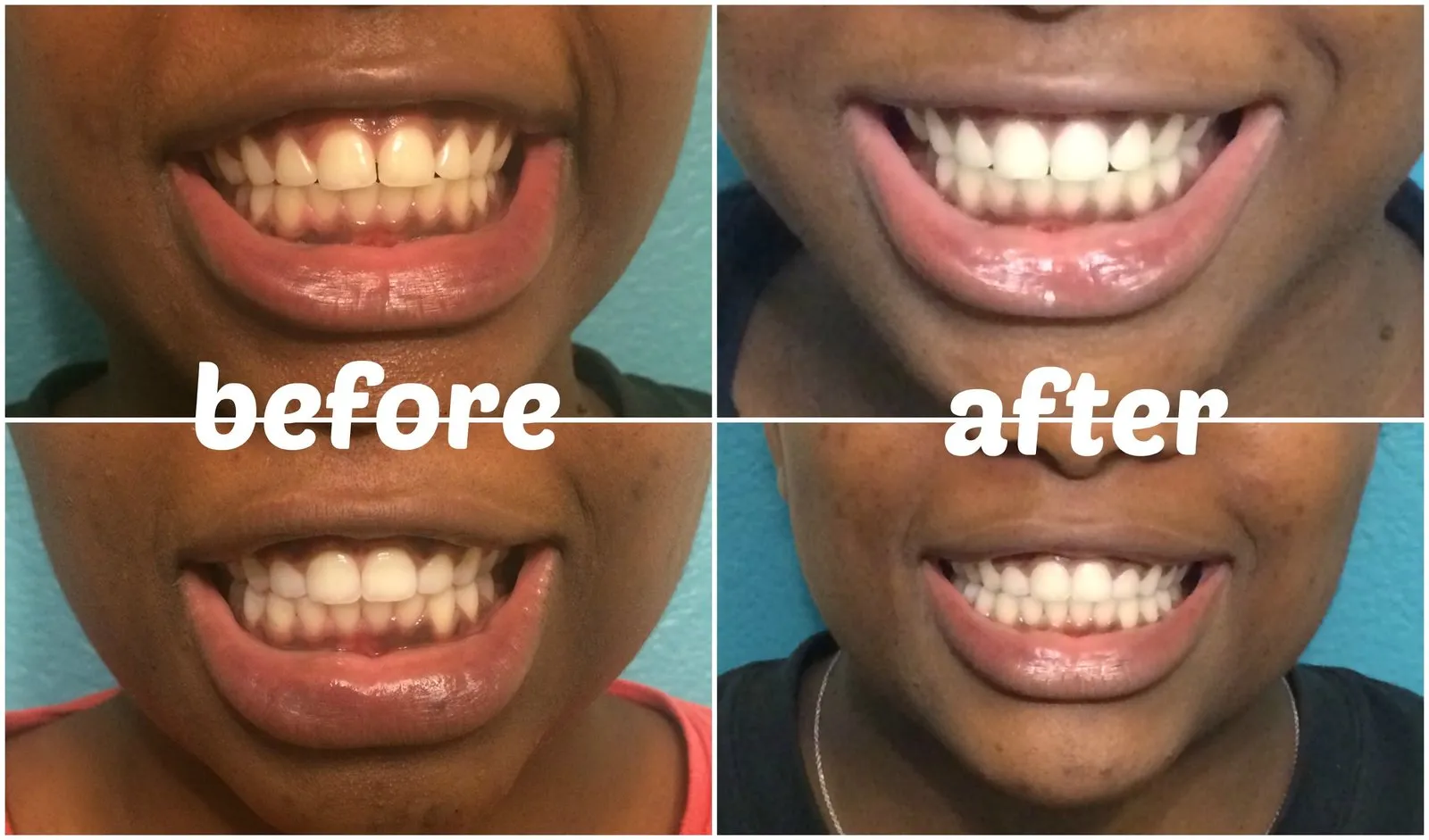
The abrasive quality of activated charcoal is essential to its effectiveness in teeth whitening. The gentle abrasion helps to remove surface stains that accumulate on the enamel. However, it’s crucial to understand that the abrasive nature also poses some risks if used improperly. The abrasive particles, if too harsh, can potentially erode the enamel over time, which can lead to increased tooth sensitivity and susceptibility to decay. To mitigate these risks, it’s essential to use activated charcoal with care. Avoid excessive pressure while brushing and do not brush too vigorously. Using charcoal products sparingly and in conjunction with a soft-bristled toothbrush can help minimize any potential damage. It is also important to be patient and realistic about the results. The impact of the abrasive action will depend on factors such as the type of stains and the frequency of use.
The Charcoal Teeth Whitening Benefits
Charcoal teeth whitening is popular because of the potential advantages it provides. It has become a favored approach for individuals looking for a natural and accessible way to enhance their smile. While it’s not a replacement for professional dental care, when used correctly, charcoal can offer several noteworthy benefits. The advantages often extend beyond just cosmetic improvements, influencing oral hygiene and overall well-being. The following sections will provide insight into the advantages associated with charcoal teeth whitening and what people can expect.
Benefit 1 Whitening Power
One of the primary reasons individuals turn to charcoal teeth whitening is its ability to brighten the appearance of teeth. Charcoal’s mildly abrasive nature helps to remove surface stains, which are often caused by common culprits like coffee, tea, wine, and tobacco. This process can reveal the natural whiteness of the teeth that might be hidden by accumulated stains. While the whitening effect isn’t as dramatic as professional treatments, many users report a noticeable improvement in the brightness of their smiles. The extent of whitening varies from person to person, depending on the type and severity of stains. Consistent use, along with regular oral hygiene practices, can contribute to a gradually brighter and more radiant smile. The benefit of whitening power is that it is a gentle method for those looking to avoid harsh chemicals or expensive treatments.
Benefit 2 Removes Stains
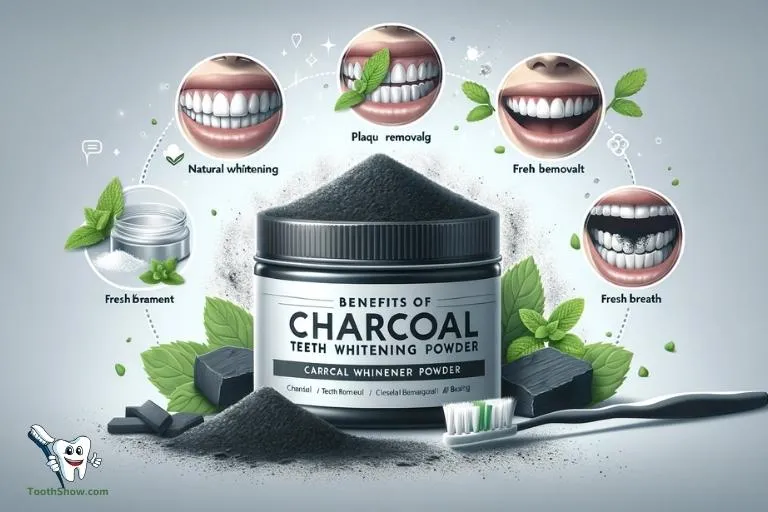
The ability to remove stains is a significant benefit of charcoal teeth whitening. The activated charcoal particles work to lift and eliminate stains that have accumulated on the enamel surface. This stain removal process is particularly effective on extrinsic stains, those that come from external sources. Common causes of these stains include dark-colored beverages like coffee and tea, foods with strong pigments, and the use of tobacco products. By gently exfoliating the teeth, charcoal helps to dislodge and remove these staining agents. This process not only improves the appearance of the teeth but can also contribute to a cleaner, healthier mouth. The removal of surface stains can give the teeth a fresher, more polished look, enhancing the overall aesthetic of the smile. This can give people more confidence, which can lead to greater overall well-being.
Coffee and Charcoal
Coffee is a common source of teeth stains. The dark pigments in coffee can quickly adhere to the enamel, resulting in yellowing or discoloration over time. Charcoal teeth whitening provides an effective way to combat the staining effects of coffee. The abrasive nature of charcoal helps to lift away coffee stains, restoring the natural brightness of the teeth. Regular use of charcoal products can help to maintain a brighter smile for those who are frequent coffee drinkers. When using charcoal for this purpose, it’s important to maintain a gentle brushing technique. Excessively vigorous brushing can potentially damage the enamel, so a soft touch is key. The effectiveness of charcoal against coffee stains makes it a valuable addition to any oral care routine for coffee lovers.
Tea and Charcoal
Tea, like coffee, contains compounds that can cause teeth stains. The tannins found in tea can bind to the enamel, leading to a gradual discoloration. Charcoal teeth whitening offers a solution for tea drinkers looking to maintain a bright smile. The charcoal helps to remove these stains, restoring the teeth’s natural whiteness. The abrasive action of the charcoal gently exfoliates the teeth, removing the tea stains that may have accumulated on the surface. It is important to pair charcoal treatments with proper brushing and flossing to maximize results. Regularly using charcoal products can help to combat the staining effects of tea, contributing to a brighter and healthier smile for those who enjoy this popular beverage.
Benefit 3 Natural Alternative
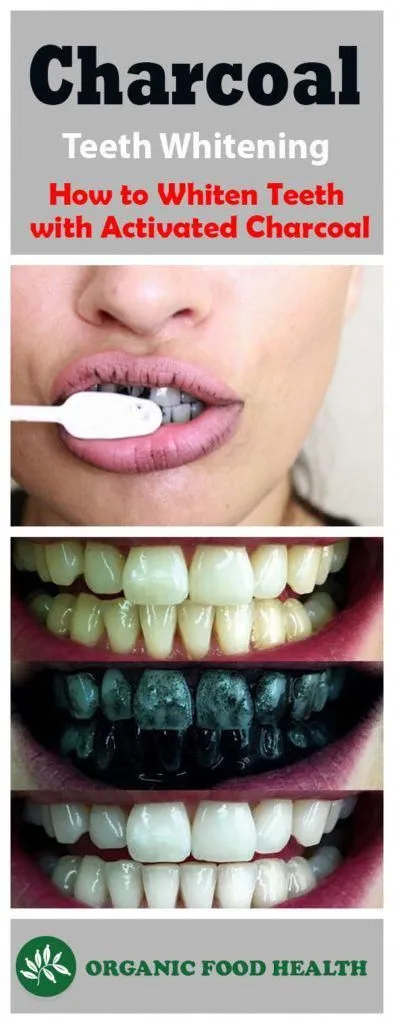
One of the significant advantages of charcoal teeth whitening is its natural composition. Many people prefer it because it offers an alternative to chemical-based whitening products. Unlike treatments that use harsh bleaching agents, charcoal relies on the abrasive properties of a natural substance, activated charcoal. This characteristic appeals to those seeking to minimize their exposure to chemicals and embrace more natural approaches to oral care. The use of charcoal aligns with a growing preference for organic and eco-friendly products in personal care routines. The natural composition of charcoal makes it an attractive option for individuals with sensitive teeth. It may be gentler on the enamel than some chemical whitening treatments. It is essential to be aware that even natural products can have potential side effects. For this reason, people should use charcoal teeth whitening with caution and awareness.
Benefit 4 Affordable Option
Charcoal teeth whitening can be a budget-friendly choice compared to professional dental treatments. The cost of charcoal products, such as powders and toothpastes, is often significantly lower than in-office whitening procedures or the purchase of expensive whitening kits. This affordability makes charcoal teeth whitening accessible to a wider range of people. The relatively low cost of charcoal products allows for regular use without putting a strain on a person’s finances. The accessibility of charcoal also encourages consistency in the teeth whitening routine, which can lead to better results. While charcoal teeth whitening may not provide the dramatic results of professional treatments, its affordability makes it an attractive option for maintaining a brighter smile on a budget.
Benefit 5 Oral Health Boost
Beyond the aesthetic benefits, charcoal teeth whitening can indirectly contribute to overall oral health. Charcoal has the potential to help remove plaque and bacteria from the teeth and gums, which can improve the general cleanliness of the mouth. By removing surface stains and impurities, charcoal products can create a cleaner environment. This may help to reduce the risk of some dental problems. While charcoal is not a substitute for professional dental care, its ability to assist in maintaining oral hygiene is an added benefit. It is essential to use charcoal as part of a comprehensive oral care routine. This means combining it with regular brushing, flossing, and visits to the dentist.
How to Use Charcoal Teeth Whitening
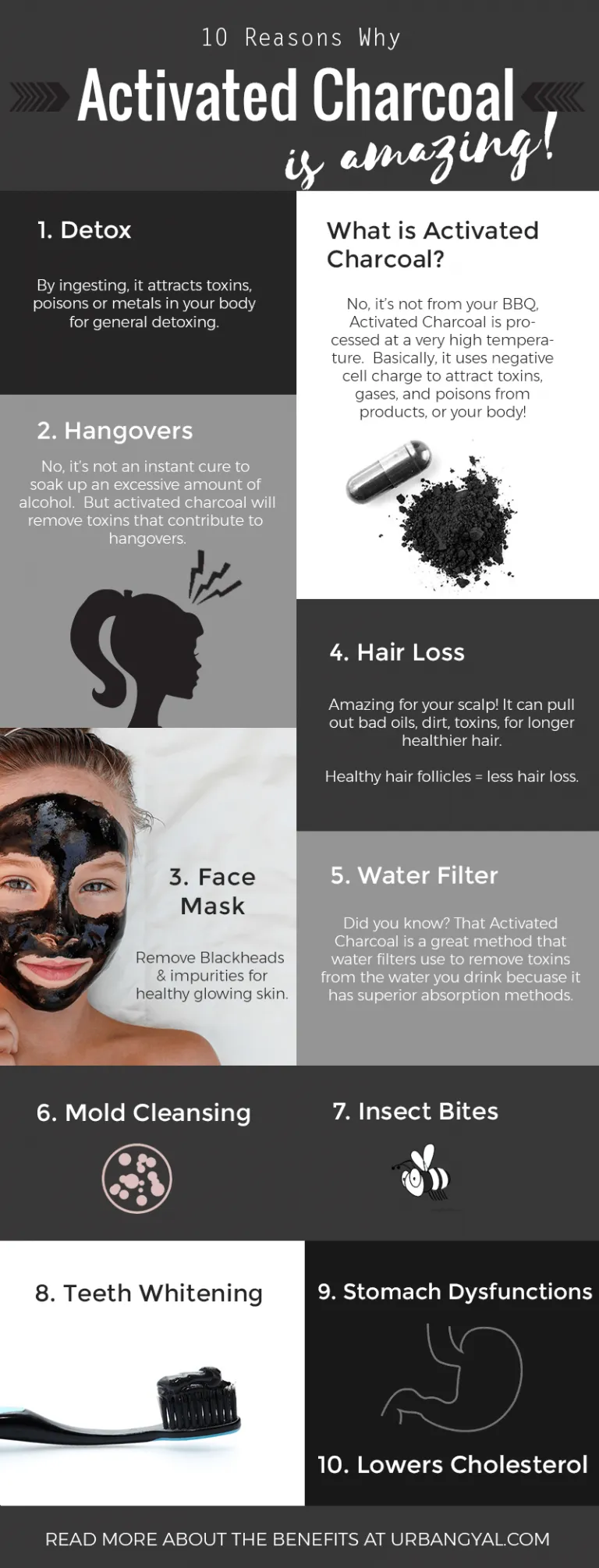
To effectively use charcoal teeth whitening, it’s important to follow a consistent process. Proper application techniques can maximize results and minimize potential risks. The following sections will guide people on how to choose the right charcoal product, how to apply it safely, and how often to use it for optimal outcomes.
Step 1 Choosing Your Charcoal
Selecting the right charcoal product is the first step in using charcoal teeth whitening. Activated charcoal comes in various forms, including powders, toothpastes, and even floss. When choosing a product, opt for one that is made from a reputable source and is specifically designed for oral use. Look for products that are free of harsh chemicals, artificial sweeteners, and abrasive additives. Pay attention to the particle size of the charcoal, as finer particles are less likely to cause enamel damage. Also, consider the other ingredients in the product. Some charcoal toothpastes contain additional ingredients like fluoride, which can help strengthen the teeth and prevent cavities. Doing some research and reading reviews can help you to find the best product for your needs.
Step 2 Application Methods
There are several ways to apply charcoal to your teeth. If using charcoal powder, you can dip a wet toothbrush into the powder and gently brush your teeth for about two minutes. Alternatively, you can mix a small amount of powder with water to create a paste. When using charcoal toothpaste, simply apply it to your toothbrush and brush as usual. Regardless of the method, it is essential to use a gentle brushing technique. Avoid applying excessive pressure, which can damage the enamel. Make sure to rinse your mouth thoroughly after brushing, to remove all traces of charcoal. This is important to prevent any black residue from remaining on the teeth or gums. It’s also recommended to use a separate toothbrush for charcoal application.
Step 3 Frequency and Duration
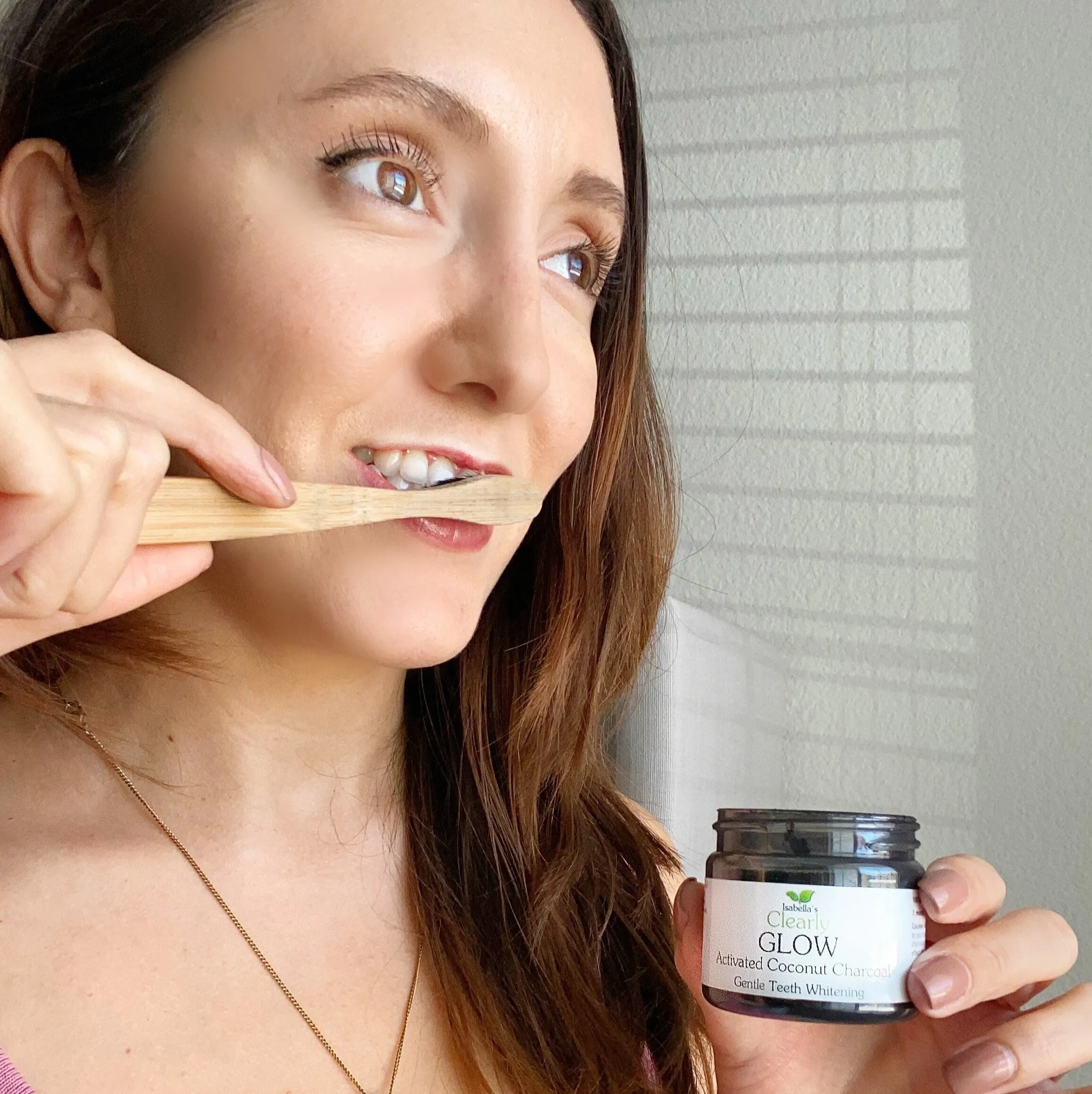
The frequency and duration of charcoal teeth whitening use are important factors in achieving the best results while minimizing risks. It is generally recommended to use charcoal teeth whitening products once or twice a day, for a maximum of two minutes per session. Using charcoal more frequently or for longer periods can increase the risk of enamel erosion. It’s important to listen to your teeth and gums. If you experience any sensitivity or irritation, reduce the frequency of use or stop using the product altogether. It’s also recommended to alternate using charcoal with a regular toothpaste that contains fluoride. This helps to remineralize the enamel and maintain oral health. Being patient and consistent with the application is key to seeing improvements over time.
Charcoal Teeth Whitening Risks and Considerations
While charcoal teeth whitening can offer potential benefits, it’s important to be aware of the associated risks and considerations. Understanding these factors can help you make informed decisions and use charcoal products safely and effectively. The following sections will cover the potential risks, such as tooth sensitivity and enamel erosion, and provide insights into how to manage them.
Sensitivity and Irritation
One of the common side effects of charcoal teeth whitening is increased tooth sensitivity. This can occur because the abrasive nature of charcoal can temporarily wear down the enamel, exposing the underlying dentin. The dentin contains nerve endings that can make the teeth more sensitive to hot or cold temperatures. Sensitivity is often temporary and may subside with consistent use. To manage sensitivity, it is recommended to use a toothpaste designed for sensitive teeth. Avoid excessive brushing pressure, which can exacerbate the issue. If the sensitivity persists or becomes severe, it is advisable to consult a dentist. They can assess the situation and recommend appropriate treatments.
Enamel Erosion Concerns
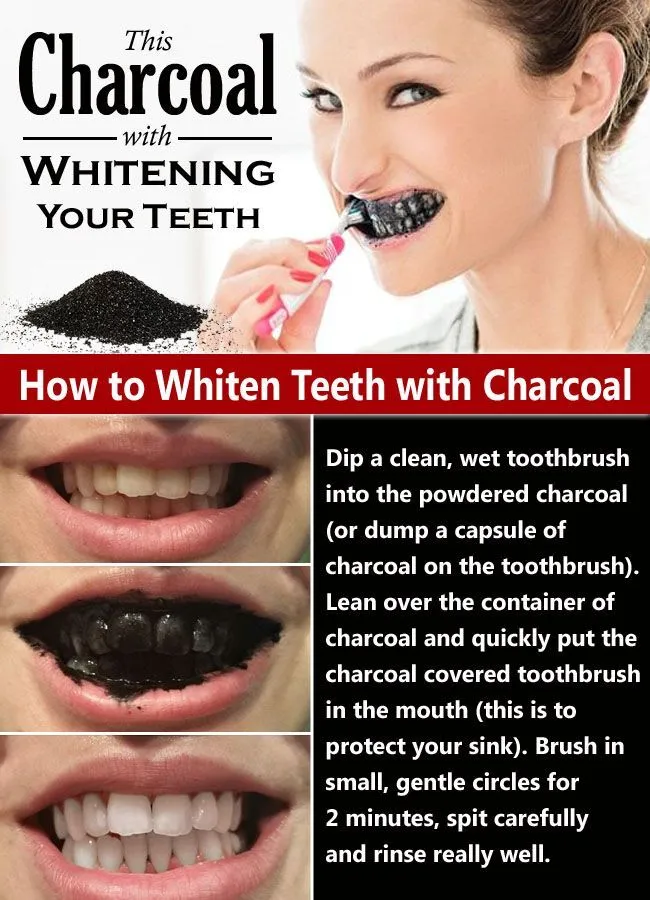
A significant concern associated with charcoal teeth whitening is the potential for enamel erosion. The abrasive nature of charcoal can gradually wear away the enamel, particularly if used improperly or too frequently. Enamel erosion weakens the teeth, making them more susceptible to cavities, sensitivity, and discoloration. To minimize the risk of enamel erosion, it’s important to use a gentle brushing technique and avoid excessive pressure. Using a soft-bristled toothbrush is also recommended. Do not brush too vigorously and do not use charcoal products every day. If you experience any signs of enamel erosion, such as increased sensitivity or changes in the texture of your teeth, it’s important to stop using charcoal and consult a dentist.
Is Charcoal Teeth Whitening Right for You
Determining whether charcoal teeth whitening is right for you requires careful consideration. It’s important to evaluate your oral health, expectations, and personal preferences before incorporating charcoal products into your routine. The following points can help you to assess whether charcoal teeth whitening is a good choice for you and the role it may play in maintaining a beautiful and healthy smile. Evaluate the information provided and make an informed decision about the path you take to achieving your perfect smile.
In conclusion, charcoal teeth whitening presents a natural approach to enhancing your smile, offering benefits such as stain removal and a potential boost in brightness. By understanding the process, the potential advantages, and the importance of safe usage, individuals can make informed decisions about incorporating charcoal products into their oral care routines. Always be aware of the risks and the importance of combining charcoal use with regular dental check-ups. A brighter, healthier smile is achievable through mindful practices.
